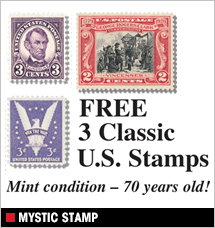
A Free Cell Phone for Seasoned Citizens? Not so Fast!
If your mama always told you there’s no such thing as a free lunch (or anything else), don’t lose sight of her wisdom now. The Better Business Bureau in some areas has been pounded with complaints about “free cell phone for seniors” ads. The phone is called “easy-to-use Senior Mobile cell phones,” and the ad says it is free. The advertiser is based in Ohio, and has various names, including Brilliant Built Technologies, a company which advertised in Denver in February. That’s when the calls started rolling into the Denver Better Business Bureau (BBB). However, this scam is not limited to Denver. The BBB in West Virginia dealt with the same ads last year. They noted the “free” offer came with inflated activation costs, presumably to cover and make a profit on an offer that was “free.”
According to the ad, all you have to pay is a one-time activation fee of $97, plus shipping, but only if you call within the 48-hour deadline. The phone has nationwide coverage, no long distance charges, no contracts, no deposit or monthly bills.
Taking the pitch a step farther, the advertiser brings the federal government in. Because seniors are at risk for their safety, they say, the feds urge them to carry phones. This is a great idea, of course, so many seniors took the bait.
If you see one of these offers, keep in mind, nothing is ever completely free. You will pay $97 plus shipping for access to 911 services. But on any other carrier, 911 services are free. As for the “no monthly bills” claim, that’s only if you stay below your first 250 prepaid minutes. Beyond that, you will pay 2 to 4 cents per minute.
This company, says the BBB has a terrible record with them. Here is their advice to you before you sign with any cell phone provider.
- Start with trust. Check a company’s BBB Business Review before you purchase goods or services and find BBB Accredited Business at findacompany.org.
- Get the details. Read and understand all terms of any offer. Ask questions if something doesn’t make sense or isn’t agreeable.
- Question free offers. BBB’s Code of Advertising gives guidelines on “free” offers including: the normal price of the merchandise or service to be purchased must not have been increased nor its quantity or quality reduced.
What About the Lifeline Program?
Lifeline is a real program, available nationwide, established to help provide cell phones to the poor and the disabled. The phones really are free, to eligible people, but of course, someone pays the bill. In this case, the costs of the free phones are paid for by a tax on everyone else’s bill, called a “federal universal service charge.” For people who genuinely qualify, this can be a true “lifeline.” However, because of fraud, the program is endangered.
Like most any government program which is targeted to help a certain population, Lifeline has been hijacked by greedy people. The eligibility rules are not strong enough, and some individuals who don’t qualify have applied for and gotten a phone or multiple phones, pretty much with no questions asked. U.S. Senator Claire McCaskill (Missouri) said even she received an application in the mail, with no proof of eligibility even mentioned.
That’s bad enough, but, said McCaskill, several cell phone companies have been fined by the Federal Communications Commission for accepting duplicate applications, for not verifying eligibility, and even for creating fake customers. In an attempt to squelch the fraud, McCaskill has introduced a bill to do away with the program altogether.
“When you pay people per person, you are creating an incentive for them to manufacture applications,” McCaskill said. The senator has a point, but put in these terms, it sounds a little like “boys will be boys,” rather than holding the thieves responsible for their greed. Killing the program will indeed stop the fraud – in this instance – but it will also remove a valuable tool from people who do qualify and need these phones.
In an effort to counter the senator’s argument, Dave Kingsley of the Missouri Alliance for Retired Americans told the media, many elderly people on fixed incomes rely on those phones for a literal lifeline. “You can’t blame all low-income people for what a few do any more than you can blame all defense contractors for a few that commit fraud.”
McCaskill is urging the FCC to apply stronger oversight to curb the fraud, which seems like a wise alternative to canceling an otherwise good program.
And the Calls Keep on Coming
You probably know, the Do-Not-Call list which you may have signed up for isn’t very effective. It does weed out some calls. But unfortunately, there are too many loopholes, and technology advances have made it easy for callers to keep right on ringing your number. It’s true the Internet is fraught with thieves, but the phone may be worse. Phones have been around longer and even people who do not trust computers generally do trust the phone.
When caller ID first became available, it was a wonderful tool to weed out calls from pesky salespeople or the sister-in-law who just wants to complain about her husband. These days, caller ID has also become a tool of scammers. Now instead of accurately identifying the person on the other end, the caller ID itself may be a scam message. Recently my phone rang and the caller ID said “Loan approved.” I hadn’t applied for a loan.
I didn’t answer. My mother’s phone rang and the caller ID said, “Lower your interest rates.” She didn’t answer either.
Some security experts say it’s best not to pick up the phone at all if you don’t recognize the caller. If the call is a scam and you answer, this tips off the caller that your number is active, and they redouble their calls to you. If it is real call, the caller will leave a message and you can get back to them. By the way, if a message if left on your machine and it sounds bogus, just delete it.
If you do pick up and are suspicious of the caller, do not press any buttons or say anything. Even if the call is a recording and offers an option like, “press one to opt out of future calls,” don’t. Chances are, this will not end the calls and may cause you to unintentionally agree to something that will cost you a bundle.
The bottom line is, be wary of the caller ID if it’s not a name you recognize. No matter what the caller ID says… you didn’t win anything. You don’t qualify for a free cruise. And you aren’t a preferred customer.
The Federal Trade Commission wants you to remember:
- Your best bet is, do not answer.
- If you answer, don’t press any buttons, or respond to requests such as “press or say one.” By doing so, you may be agreeing to something, and you can be sure, it will cost you.
- Yes, there is a law to prohibit calls to anyone whose name is on a do–not-call list. But thieves don’t care about that or any law.
- If you get unwanted recorded calls you can contact the FTC at 1-888-382-1222 or online at www.donotcall.gov.
Teresa Ambord is a former accountant and Enrolled Agent with the IRS. Now she writes full time from her home, mostly for business, and about family when the inspiration strikes.



























































